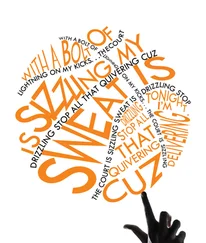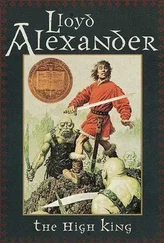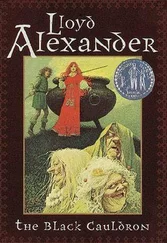“Magda.” Cook said my name breathlessly, as if it might be the last time we spoke. “If we are separated, be sure to go west. Baur told me he had flown over the Americans near Magdeburg. You must cross the Havel River at Spandau.” Her words corroborated what the pilot had told me earlier.
It had been years since I visited Spandau. I knew the general direction to take, but doubted I could make it alone.
Mohnke and the others shouted they had reached an exit. One of the soldiers tried to get to the street, but was driven back by the shelling. We went on. Cook and I ran side by side, holding on to each other’s hands. We stumbled through the tunnel, dodging the debris that appeared out of nowhere before us. We were puffing along when I felt Cook’s hand slip from mine. She cried out in pain and disappeared in the darkness.
I called for her. “What’s wrong?”
“I tripped on a timber,” Cook said. “I’m finished.” A soldier came near us and cast his torch down. Cook’s leg was bleeding and puffy. “I think it’s broken,” she said. “You must go on with the others.”
“I’ll stay until help comes.”
She pushed me away. “Don’t be a fool. No one will come. You have a chance to escape. The enemy will arrest me and that will be that.”
“We need to move on,” the soldier said, and waved his torch in the direction of the others far ahead. The group was splitting apart.
“Go on without me,” I said. The soldier nodded and ran after the others, leaving us in the dark. A few stragglers, or perhaps others from the groups leaving the bunker, passed by. Their steps sounded on the wooden tracks; I felt the cool sweep of air from their bodies rush past mine. Then, all was black and silent. Far down the tracks, where the soldier had tried to climb out, the artillery flashed like lightning. Cook’s pain-filled face appeared for a split second.
“Leave me, Magda.” She thumped her fists against my coat. “Go, or I’ll have a soldier drag me into the street and shoot me like an injured horse.”
“You don’t mean it.”
“I do! Leave! You can’t save me, but you can save yourself. I want you to go. I will never forgive you if you don’t.” She paused, clutched my lapels and then said in a voice twisted by agony, “I will never forgive myself if something happens to you.”
I was about to repeat my conviction to stay by her side when Karl’s words came into my head. The strength and resonance of them shocked me. “Remember to stay alive, Magda. Whatever you do, stay alive,” Karl had said to me in a train tunnel under war-ravaged Berlin. My body trembled and I struggled to hold back tears.
“I don’t want to go,” I told Cook.
She was silent for a moment; then her cold hands grasped mine. “You must. You have your life ahead of you. Mine is half-gone—and the rest doesn’t matter.”
I held her close to me, kissed her on the cheek and struggled to my feet. I turned and the tears I had been holding stung my eyes. Behind me, the exploding shells lit up the exit again. I ran away from Cook toward the direction of the light, leaving her alone on the tracks. I decided to get above ground rather than travel with the others.
A large pile of rubble at the exit made it almost impossible for me to get by. Several minutes passed as I crawled over the concrete and twisted metal. I cocked my ears trying to hear any sound of approaching shells. Finally I darted into the street and was met by another hellish vision of fire, crumbling buildings and destroyed vehicles. Gunfire echoed down the streets, but the pop-pop-pop sounded far away. I took a chance and turned left—what I thought would be to the west. I dashed across the street, dodging rubble and garbage, and ended up scrunched in a deserted doorway. My heart beat heavily in my throat. I stepped backward to rest and bumped into something.
I screamed, but I might as well have been screaming into the wind.
“Where are you headed?” a man asked. His voice was filled with concern and compassion. There was no hint of weakness behind it.
I turned. “My God, you scared me to death.” I could see his strong face in the fiery light of war. He was clothed in black and unshaven, with a dark growth of beard.
“There’s no need to be afraid. I’m on the run—like you.” He smiled.
“I’m sorry, but you startled me.” I leaned against the wall, trying to catch my breath.
“A shell is coming,” he said. He pushed me into the corner and held his body over mine. It exploded in the middle of the block. Rocks and debris hurtled past us.
I had heard nothing. “How did you know?”
“I can sense these things,” he said. He backed away from me, brushing the dirt from his shoulders. “You can feel the vibration in the air. Are you looking for the Allies?”
I nodded.
“Everyone is. I’m going that way myself.”
“I don’t know who you are,” I said. “Why should I trust you?”
“My name is Karl. We can do this together. Who are you?”
I stared at him as the light flickered on his face. An overpowering sense of calm rushed over me. “Magda Ritter.”
“Magda. A pretty name.” He pointed to the street. “If we want to escape we should go before it gets light. We’ll have a better chance.”
“Are you a soldier?”
He shook his head. “No, I’m a German who never believed in the Führer or the waging of war. I was away for a time. I’m no fortune-teller, but I always knew it would end up like this.”
I wanted to believe him. There was something in his eyes that spoke of safety and warmth. Of course, his name brought up memories of my husband, but Karl was a common name for German men. My intuition told me I had nothing to fear. “Let’s go then. I was told I need to cross the Havel. How far is it to Spandau?”
“About eighteen kilometers. We can cross the bridge before dawn.”
I wondered how he knew about the bridge Cook had told me about. Perhaps it was common knowledge gleaned from a web of underground communications.
He grabbed me by the hand and pulled me into the street.
The next few hours passed in a haze as we wound through the deforested woods of the Tiergarten, across shattered streets, cut through courtyards, even going back to the train tunnels briefly to get to our goal of Spandau. Scenes of desolation continued in the hours ahead: burned-out buildings, entire blocks leveled from the bombing. Now and then we saw people scramble for cover as more shells fell. Misery and destruction accompanied us everywhere on our journey. Karl said he considered the dead to be the lucky ones.
About five in the morning we reached the Charlotten Bridge over the Havel River with a few other refugees who appeared out of nowhere. I wondered whether we might not be shot crossing it. I stopped, uncertain what to do.
“Go ahead,” he said. “I’ll wait here.”
“Aren’t you coming?”
He touched my face with his hand and said, “It would be a pleasure, but I have work to do. There are others who need my help—just as you did. More are coming.”
A strange sadness filled my heart and I hoped he would change his mind.
“I can’t,” he said as if he could read my thoughts. “Go now, while it’s still safe.”
“I can’t persuade you?”
He shook his head and waved me on.
I walked across the bridge, turning to look back now and then. He stood on the east side of the Havel staring at me. When I’d crossed, I turned and waved to him. He waved back, a dark figure a hundred meters away.
Spandau lay abandoned before me, its streets lifeless, drained by war. From somewhere in the distance, shouted words filled my ears. I immediately recognized them as Russian. Terror shot through me and for an instant I thought of running back across the bridge to Karl, but when I turned, he had disappeared.
Читать дальше












